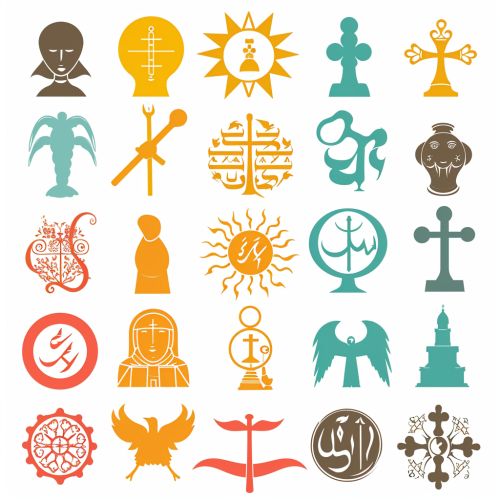Theism
Definition and Overview
Theism is a philosophical and religious belief system that posits the existence of one or more deities. The term is derived from the Greek word "theos," meaning "god." Theism is often contrasted with atheism, which denies the existence of deities, and agnosticism, which asserts that the existence of deities is unknowable or unprovable. Theism encompasses a wide range of religious traditions, including monotheism, polytheism, and pantheism, among others.


Types of Theism
There are several types of theism, each with its own unique characteristics and beliefs about the nature of deities and their relationship to the universe.
Monotheism
Monotheism is the belief in the existence of a single, omnipotent, omniscient, and omnipresent deity. This form of theism is prevalent in religions such as Christianity, Islam, and Judaism. Monotheistic religions often posit that their deity is the creator and sustainer of the universe.
Polytheism
Polytheism is the belief in the existence of multiple deities, each with their own distinct characteristics and domains of influence. This form of theism is common in religions such as Hinduism, Ancient Greek Religion, and Norse Religion. Polytheistic religions often have a complex pantheon of gods and goddesses, each responsible for different aspects of the natural world and human experience.
Pantheism
Pantheism is the belief that the universe itself is divine, or that divinity is immanent in all things. This form of theism is often associated with certain strands of Hindu Philosophy, as well as some interpretations of Buddhism and Taoism. Pantheists often reject the idea of a personal, anthropomorphic deity in favor of a more abstract, impersonal divine principle.
Henotheism
Henotheism is the belief in the existence of multiple deities, but with the worship of one deity as supreme. This form of theism is seen in certain periods of Ancient Egyptian Religion and Hinduism.
Deism
Deism is the belief in a creator deity who does not intervene in the universe after its creation. This form of theism emerged during the Enlightenment and is often associated with figures like Thomas Jefferson and Voltaire.
Theistic Arguments
There are several philosophical and theological arguments that have been put forward in support of theism. These include the cosmological argument, the teleological argument, the moral argument, and the ontological argument.
Cosmological Argument
The Cosmological Argument posits that the existence of the universe requires a cause or explanation, which is identified as God. This argument is often associated with Thomas Aquinas and his Five Ways.
Teleological Argument
The Teleological Argument, also known as the argument from design, asserts that the complexity and orderliness of the universe suggest the existence of a purposeful designer. This argument has been used by figures such as William Paley and is often invoked in discussions of intelligent design.
Moral Argument
The Moral Argument posits that the existence of moral values and duties implies the existence of a moral lawgiver, identified as God. This argument is often associated with Immanuel Kant and contemporary Christian philosopher William Lane Craig.
Ontological Argument
The Ontological Argument is a philosophical argument that posits the existence of God based on the concept of a being than which nothing greater can be conceived. This argument is often associated with Anselm of Canterbury and has been developed and critiqued by numerous philosophers throughout history.
Criticisms and Counterarguments
Theism has been subject to various criticisms and counterarguments, both philosophical and empirical. These include the problem of evil, the argument from nonbelief, and various scientific challenges.
Problem of Evil
The Problem of Evil is a philosophical challenge to theism that questions how an omnipotent, omniscient, and omnibenevolent God could allow evil and suffering to exist in the world. This problem has been discussed by many philosophers and theologians, with various theodicies and defenses proposed in response.
Argument from Nonbelief
The Argument from Nonbelief posits that the existence of nonbelief in God is evidence against the existence of an omnipotent, omniscient, and perfectly good God who wants humans to believe in him. This argument has been developed by philosophers such as J.L. Schellenberg.
Scientific Challenges
Various scientific theories and findings, including evolutionary biology and Big Bang cosmology, have been interpreted by some as challenging theistic beliefs, particularly those involving a literal interpretation of religious texts.
